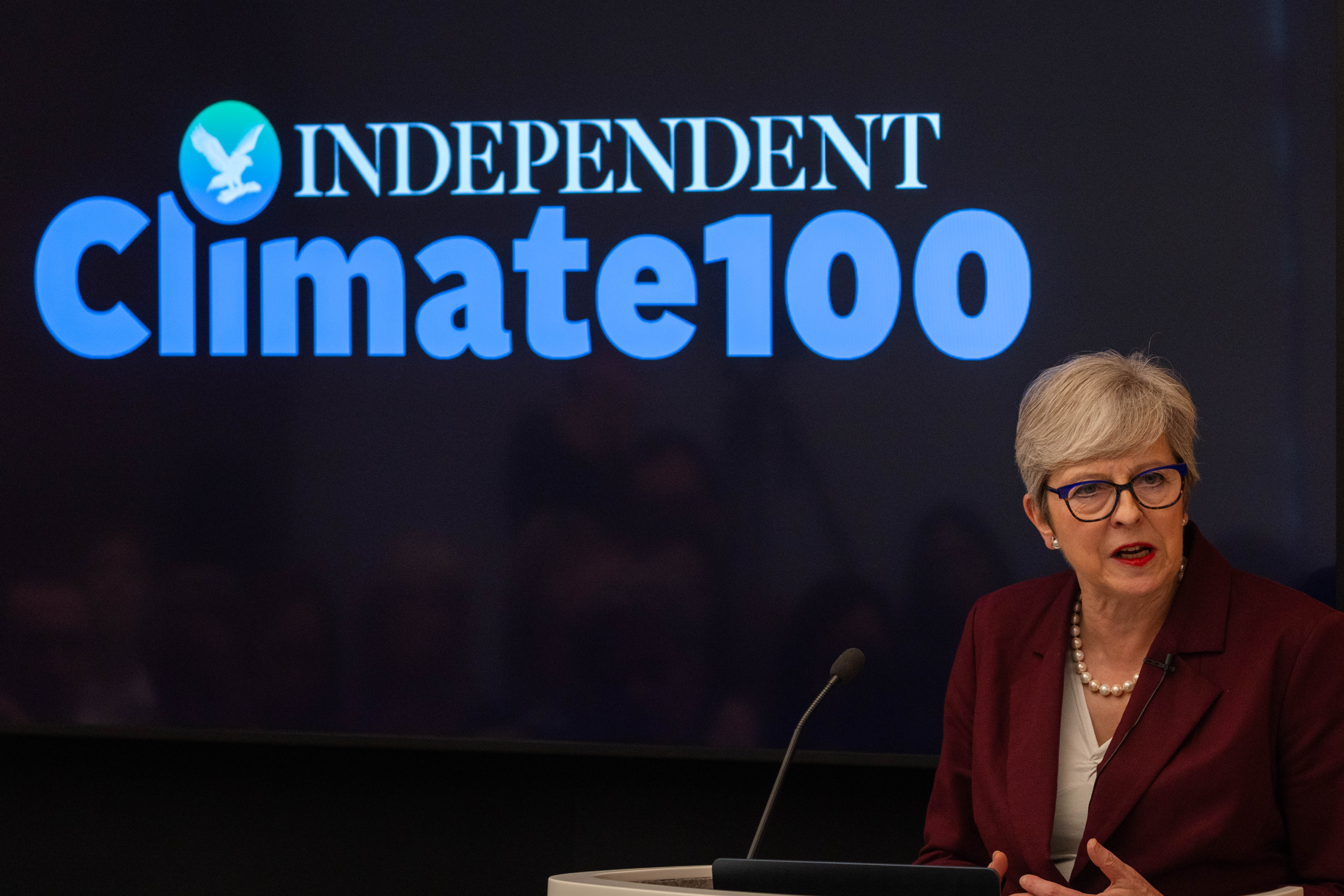Green investment can boost the British economy – we must listen to Theresa May
Editorial: The attention of the whole world, understandably, has been focused on the tragedies still unfolding in the Middle East and Ukraine; yet, as Lady May reminds us, the challenge of anthropogenic climate change remains a transcendent one

The intervention by former prime minister Theresa May at the United Nations Summit of the Future in New York is a timely one. The attention of the whole world, understandably, has been focused on the tragedies still unfolding in the Middle East and Ukraine; yet, as Lady May reminds us, the challenge of anthropogenic climate change remains a transcendent one.
That, indeed, has been the recurring theme in The Independent’s longstanding campaign on the issue, of which the new Independent Climate 100 List of leading climate influencers is the latest initiative. The case for limiting the rise in the Earth’s temperature has never been more important, simply because the progress made has not, so far, been sufficient to ensure that irreversible, unpredictable and catastrophic changes in the very conditions for life on our planet do not befall humanity. That is why the issue ranks highest of all.
Lady May has long been a distinguished and effective warrior against modern slavery. The world-leading legislation she placed in the statute book is one of her abiding achievements as prime minister. Superficially, the links between these two scourges of humanity may not be apparent – but the connections are real. Climate change, as we already see, leads to desertification and prolonged droughts, particularly in sub-Saharan Africa. It causes famine, and erodes the economic viability of communities on the “front line” of the climate crisis.
Extreme weather events, which are increasingly common, drive people away from their homes, while rising sea levels in populous states such as Bangladesh will inevitably lead to mass migration. In such circumstances, as the West is perhaps beginning to comprehend, the criminal gangs will move in and exploit the most desperate of what may be termed “climate refugees”. And the most at risk of those are, as ever, women and girls, destined for modern slavery in appalling circumstances.
Yet the case for restraining climate change can also be made to the industrialised world on the grounds of pure self-interest. One of the most pernicious and persistent myths about replacing fossil fuels with green energy is that it is more expensive and places an unfair burden on the poorer sections of society in the richer nations. This is an outrageous inversion of the truth. Solar, wave, hydro and wind-derived energy are – once established – extremely economical.
In the UK, for example, renewable energy could slash bills for homes that have been converted to the new technologies, and have reasonable insulation, by one-third. No single investment would do more to boost the standard of living of households, or industrial efficiency and competitiveness, than a plentiful supply of low-cost, low-emission electricity.
Until the technology of energy storage becomes sufficiently advanced, a portion of our energy needs will still have to be covered by nuclear energy, and even a small proportion by fossil fuels. But there can be no doubt that fossil fuels have no future, because they are killing the planet – and even if they were not, they are clearly finite, both technically and economically.
The cost, as with any new technology, comes in the initial outlay – and in accepting, as the present prime minister has pointed out, that there will be some changes to the landscape, such as pylons, solar farms and windmills.
Who pays for the new green future is obviously a sensitive issue, and one that deserves debate. “Green levies” on domestic fuel bills were always misunderstood because the mechanism, let alone the justification, was poorly explained, and they became an obvious source of resentment to be exploited by the populist right when the latest energy crisis erupted.
It might be better to finance the investment in the infrastructure, and in domestic and business installations of heat pumps, through general taxation and borrowing – for the clear benefit of the nation’s future. However such developments are paid for, the aim in the UK should be to move as quickly as possible to an energy model by which the nation can be freed of its reliance on importing energy from expensive and unreliable sources.
In 2019, Lady May made the commitment to “net zero” carbon emissions by 2050 a legal obligation on successive British governments, and she should be congratulated for that, too. And for all his many shortcomings, Boris Johnson should be given some credit for pursuing the issue, notably at the Cop26 summit. David Cameron, Gordon Brown – who secured the original 2008 Climate Change Act – and Sir Tony Blair also established British leadership in this field.
It is disappointing, then, that Rishi Sunak, in something of a panic in his final months in office, chose to dilute the commitment; and it is even more shameful that the four people vying to succeed him as Tory leader and compete for the premiership should be dishonouring that inheritance still further.
The radical right, well represented in sections of the Tory party and in Nigel Farage’s Reform UK vehicle, threaten much damage to the UK’s social fabric and prosperity, but their denial of climate change and its consequences is their greatest folly. It is time that their spurious arguments about fracking and exhausting the tiny remaining UK oil and gas reserves were exposed for the fallacies they are; generating power by these means cannot affect the global price of hydrocarbons, or bring down household energy bills.
The new technologies will create jobs and, potentially, make the UK a world leader in the field.
The future is green – it has to be.






Join our commenting forum
Join thought-provoking conversations, follow other Independent readers and see their replies
Comments